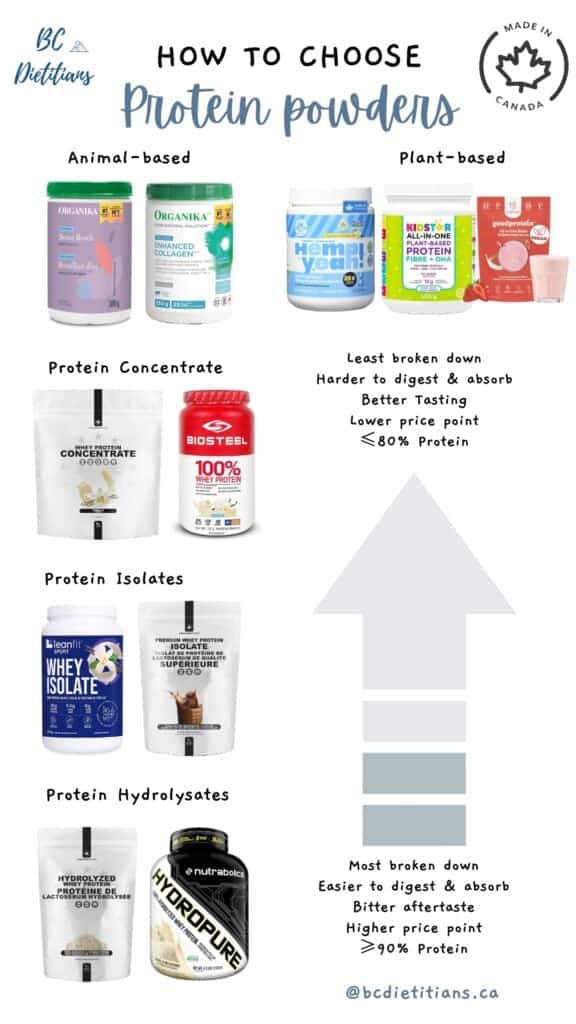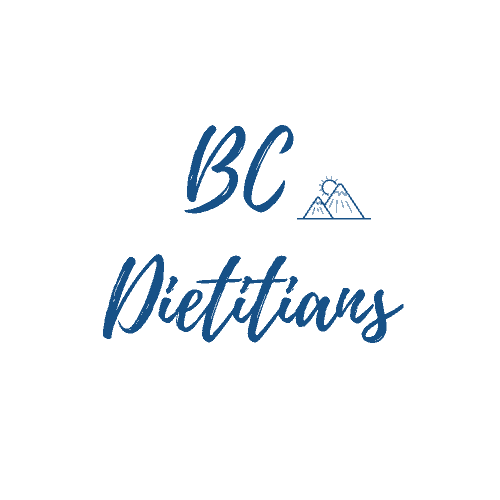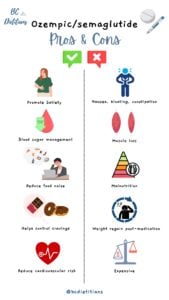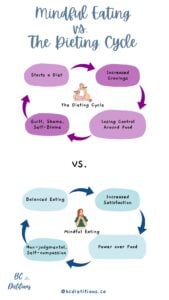Proteins are the building blocks of our bodies: they form the very foundation of our cells, tissues, organs, and body functions. In general, aim to include ~20g of protein for meals and ~10g of protein for snacks for adults.
While most Canadians typically consume enough protein through food alone, some people may benefit from protein supplementation, in an addition to a balanced diet, for a number of potential reasons. For example, athletes who require more protein to repair or build muscle mass, vegetarians who may have a hard time getting their protein needs from plant-based options, people who are trying to lose weight by getting enough protein to manage their hunger levels, older adults who may experience decreased appetite to prevent muscle deterioration, people needing to support recovery and repair (ie. post surgery and cancer) may require more protein in easier ways than through whole foods alone.
Curious about how much protein you should be eating? try out our Macro Calculator to estimate your individual macro needs (calorie, carbs protein, fats, and fiber).
Read on to check out our top picks for the different protein powder options. In an effort to support Canadian businesses in the midst of Trump Tarriffs and the trade war, we have since updated this list to reflect products that are made in Canada.
First, Consider Dietary Protein Additions
Did you know you can easily incorporate more protein by adding in these food-based options to your meals? The benefits of using food-based protein additions include getting other nutrients besides protein such as Calcium, vitamin B12, Iron, fiber.
- Plain Greek yogurt – 17g protein per 3/4cup (175g)
- Bone broth powder – 20-30g protein per 30g
- Skim milk powder – 8g protein per 30g
- Soft tofu – 26g protein per cup (100g)
- Egg white powder – 25g protein per 30g
- Peanut powder – 15g protein, 4g fiber per 30g
- Nutritional yeast – 15g protein, 7.5g fiber per 30g
What Protein Powder Should I Buy?
Protein powder has become increasingly popular over the years! Where should you start when you’re looking to choose a protein powder that is suitable for your needs? It can be overwhelming to step into a store and have to decipher words that seem to be in a foreign “nutrition language”. Let’s break down the process together step by step!
Protein powder can be an excellent source of protein for individuals who need extra protein in their diets. However, it is important to keep in mind that our main source of protein should come from whole foods we eat and not supplements, such as protein powder. Protein powder alone should not be considered as a balanced meal or snack, but can be a healthy and convenient addition to create a more balanced diet (e.g. added to a smoothie to boost protein intake).
Please speak with your physician or dietitian about how to safely incorporate protein into your diet if you have a pre-existing condition that may affect your ability to digest and absorb large amounts of protein (e.g. kidney and liver disease). For the same reason, we typically do not recommend using protein powders for children.
Look for Quality Assurance
In Canada, protein powders that have been assessed for quality, safety and efficacy by Health Canada will have an 8-digit Natural Product Number (NPN) listed on the label (e.g., NPN 80106132). There are also third party testing such as NSF certifications for cGMP (Current Good Manufacturing Practices). When selecting a protein powder, choose one with a NPN, third party certification(s) or contact the company to learn more about their quality assurance processes when possible.
Products with an NPN (Natural Product Number) meet strict safety requirements from Health Canada. They must be free from contaminants like pesticides, heavy metals, and harmful microbes. Labels must list ingredients, dosage, duration of use, cautionary statements, and risks. Additionally, they must be produced in an approved facility.
In Canada, protein powders are regulated as either foods or natural health products (NHPs), depending on their composition and the claims made. Protein powders do not always have NPN (Natural Product Number) numbers because NPNs are required only for natural health products (NHPs) that make specific health claims and/or contains added vitamins, minerals, or other bioactive substances under Health Canada regulations.
Consider the Types and Sources of Protein Powder:

*As an Amazon and Organika associates, we earn from qualifying purchases.*
Protein Concentrates: this form of protein is the least processed or “broken down” which means it will take a longer period of time to digest and absorb. Concentrates contain 80% or less of protein and therefore may also contain higher amounts of carbohydrates and fats. Typically concentrates are presented in a protein blend (with or without isolates), concentrate is the most affordable type of protein and have the least aftertaste.
1. Canadian Protein Whey Concentrate (Windsor, Ontario) – 22g protein per 30g
Quality Control – In-house testing. Enter your lot number online for batch-specific results.
2. BioSteel 100% Whey Protein Powder (Windsor, Ontario) – 24g protein per 30g
Quality Control – Third party tested with NSF Certified for Sport® certification. Natural Product Number (NPN): 80080243
Protein Isolates: this form of protein is moderately processed, or “broken down,” which means it takes less time to digest and absorb. Isolates contain 90%+ protein. It contains lower amounts of carbohydrates and fats compared to concentrates as the processing yields a more refined protein. Since much of the carbohydrate is removed (particularly lactose) protein isolates may be less irritating on the GI system in those with lactose-intolerance. Typically, isolates are in the mid-range price point.
1.Leanfit sport whey isolate (Burnaby, BC) – 25g protein per 30g
Quality control – Third party tested with Informed Choice certification – Natural Product Number (NPN): 80119664
2. 100% Whey Protein Isolate – Canadian Protein (Windsor, Ontario) – 25g protein per 30g
Quality Control –In-house testing. Enter your lot number online for batch-specific results.
Protein Hydrolysates: this form of protein is the most processed, or “broken down,” which means it takes the least amount of time to digest and absorb. It is 90%+ protein and contains little amounts of carbohydrates or fat. Since much of the carbohydrate is removed (particularly lactose) protein hydrolysates may be less irritating on the GI system in those with lactose-intolerance.
There are different types of hydrolyzed protein that are available in the market, including whey, casein, collagen, and soy protein hydrolysates. Hydrolysates typically contain a very bitter taste and hence most are found in a protein blend (along with concentrates and isolates). Some manufacturers may add more sugar or sweeteners to mask the bitter taste. Typically, hydrolysates are the most expensive type of protein powder.
1.Hydrolyzed Whey Protein – Canadian Protein (Windsor, Ontario) – 23g protein per 30g
Quality Control – Third-party testing. Enter your lot number online for batch-specific results.
2.100% Hydrolyzed Whey – Nutrabolics (Vancouver, BC) – 23g protein per 30g
Quality control – third party tested, scan QR code on your product to get detailed testing information on each batch. Natural Product Number (NPN): 80090023
Plant-Based vs. Animal-Based Protein Powder:
Protein powders can be made from a variety of protein sources:
Animal-based protein powders: milk derivatives (e.g whey and casein), beef (e.g. collagen and bone broth), egg white, etc.
- Beef Bone Broth – Organika Health Products (Vancouver, BC) – 30g protein per 30g
Quality control : Third party tested. - Enhanced Collagen Original | Organika Health Products (Vancouver, BC) – 27g protein per 30g
Quality control : Third-party tested. Natural Product Number (NPN): 80075974
Plant-based (vegetarian) protein powders: soy protein, pea protein, hemp protein, rice protein, etc.
Note that most animal sources of protein are complete proteins, meaning they provide all the essential amino acids, while plant sources of protein are not complete on their own. For example, rice protein alone is not a complete protein, but a rice/pea protein blend is a complete protein. Plant sources of protein also tend to be lower in protein and less digestible for the same serving size compared to animal protein.
- Hemp Yeah! Protein Powder – Manitoba Harvest Hemp Foods (Winnipeg, Manitoba) – 15g protein per 30g
Quality control : third party tested as per email communications to the company. - Goodprotein Protein Powder (Quebec) – 21g protein per 30g
Quality control : third party tested. - Kidstar Plant-based protein (Vancouver, BC) – 15g protein, 4.5g fiber per 30g
Quality control : All ingredients and finished products are third-party tested. Natural Product Number (NPN): 80111764
Check the Ingredient List and Nutrition Facts
- Protein should be listed as the first ingredient
- The ingredients list of a protein powder will vary depending on the intended purpose. If the protein powder is intended to solely boost protein intake, it will mainly contain protein and the ingredients list should be fairly short.
- if the protein powder is intended for weight gain or designed to perform a dual function as both a protein supplement and a vitamin and mineral/health supplement, it may contain extra ingredients including carbohydrates, fiber, added vitamins and minerals, and healthy fats.
Look for protein powders with:
- Added sugar: < 5g
- Protein: 15-30g per serving
- Calories: 100-200kcal per serving
- Additional vitamins and minerals, and healthy fats (e.g. omega 3) if desired
References
- Canada Revenue Agency. (2004). Products commonly described as dietary supplements. Retrieved from: https://www.canada.ca/en/revenue-agency/services/forms-publications/publications/gi-001/products-commonly-described-dietary-supplements.html
- About Natural Health Product Regulation in Canada. (2016). Health Canada. Retrieved from: https://www.canada.ca/en/health-canada/services/drugs-health-products/natural-non-prescription/regulation.html
- Food and Drug Regulations. (2021). Health Canada. Retrieved from: https://laws-lois.justice.gc.ca/eng/regulations/C.R.C.,_c._870/page-57.html#h-574120
- Hoffman, J. R., & Falvo, M. J. (2004). Protein – Which is Best?. Journal of sports science & medicine, 3(3), 118–130.
- Labelling requirements for foods for special dietary use definitions. (2019). Canadian Food Inspection Agency. Retrieved from: https://www.inspection.gc.ca/en/food-labels/labelling/industry/foods-special-dietary-use
- Maciel, R. & Malacoff, J.(n.d.). What’s the best protein powder? Your complete guide to choosing the right supplement for you. Precision Nutrition. Retrieved from: https://www.precisionnutrition.com/how-to-choose-protein-powder#whoshoulddrinkprotein








Add a comment